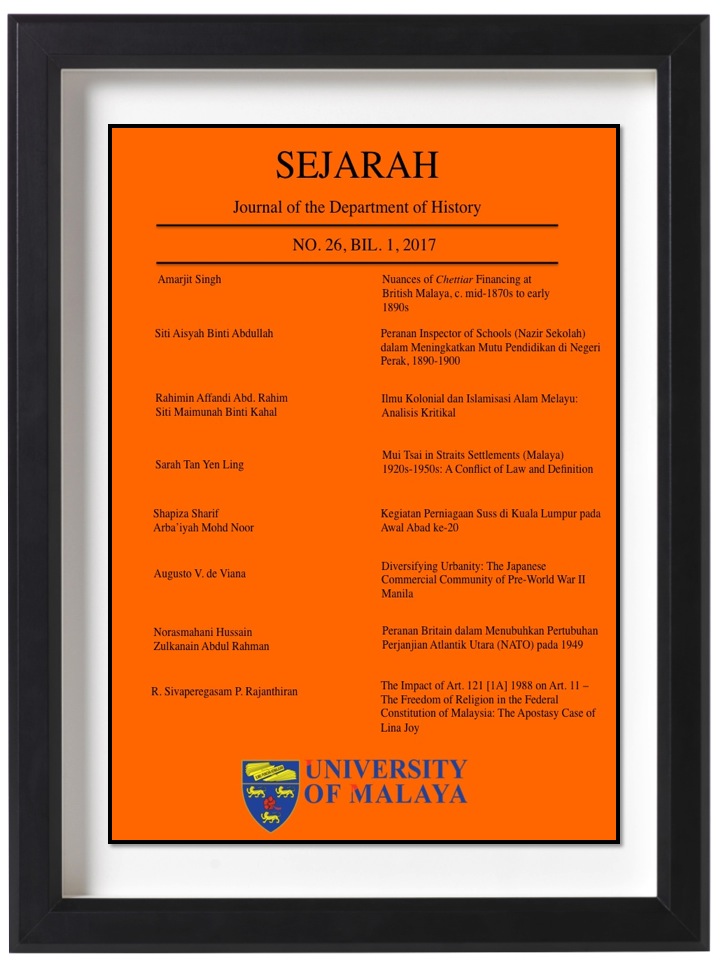MUI TSAI IN STRAIT SETTLEMENTS (MALAYA) 1920s-1950s: A CONFLICT OF LAW AND DEFINITION
DOI:
https://doi.org/10.22452/sejarah.vol26no1.4Abstract
The Mui Tsai system has been described as domestic servitude, a form of slavery, and in the same breath, a charitable act. These descriptions are at opposite ends, and it is this conflict of definition that has resulted in much debate surrounding the Mui Tsai practice. In the Strait Settlements between the 1920s-1950s a number of key legislative provisions were passed by the then Colonial government in an attempt to regulate and to eradicate this practice; in particular the Female Domestic Servants Ordinance 1925 and the Mui Tsai Ordinance 1932. While legal effort to legislate the Mui Tsai practice was made, it continued to flourish. The article examines this conflict, the complexities within the Chinese customary practices surrounding the Mui Tsai in the Strait Settlements, and how English law evolved and attempted to mould existing definitions to fit the various permutations and versions of what a Mui Tsai is. The article also reveals in its wake, the superficiality of the Strait Settlements government in approaching the concept of Mui Tsai and concludes with several possibilities on why these efforts were thwarted. Although much has been written on this practice in Hong Kong, comparatively little has been documented in Malaya and in the Strait Settlements, particularly from a legal perspective. It is this lacuna that the article hopes to fill.






